The Rowan: Centre offers hope for sexual assault survivors
- Published
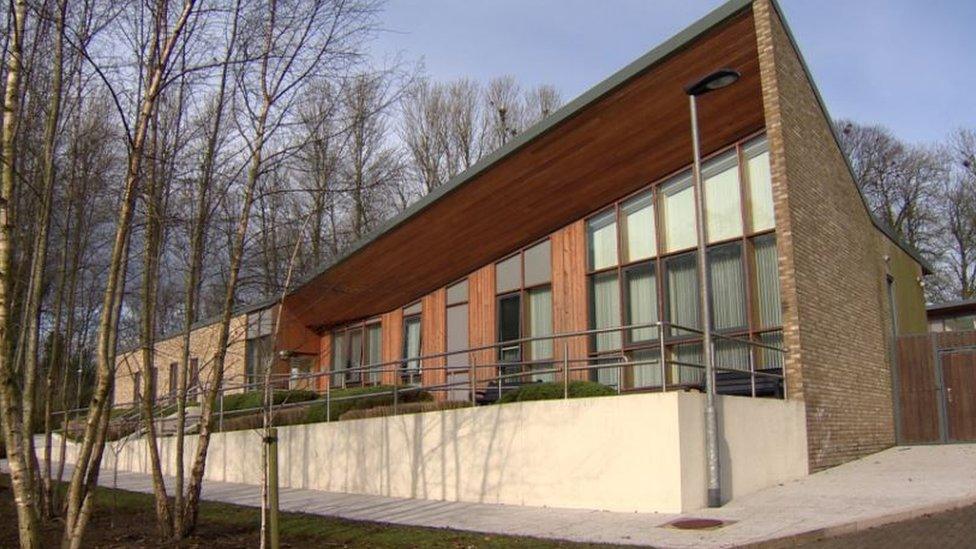
Almost 1,000 people attended the Rowan last year
Someone's listening. A chance to breathe. Survivor not victim.
The patchwork of thoughts on the reception wall gives an insight into the work that goes on every day at the Rowan - Northern Ireland's only sexual assault referral centre (SARC).
These messages of hope are among dozens of artworks dotted throughout the facility, which reflect the harrowing journey from crisis to recovery.
Last year, almost 1,000 people attended the Rowan - 205 of whom were aged under 18.
"We would have all age ranges here - from babies right up to people in their nineties," Rowan service manager Claire Galloway said.
"We serve anyone, be they old, young, male, female, trans. Anyone is welcome in this centre."
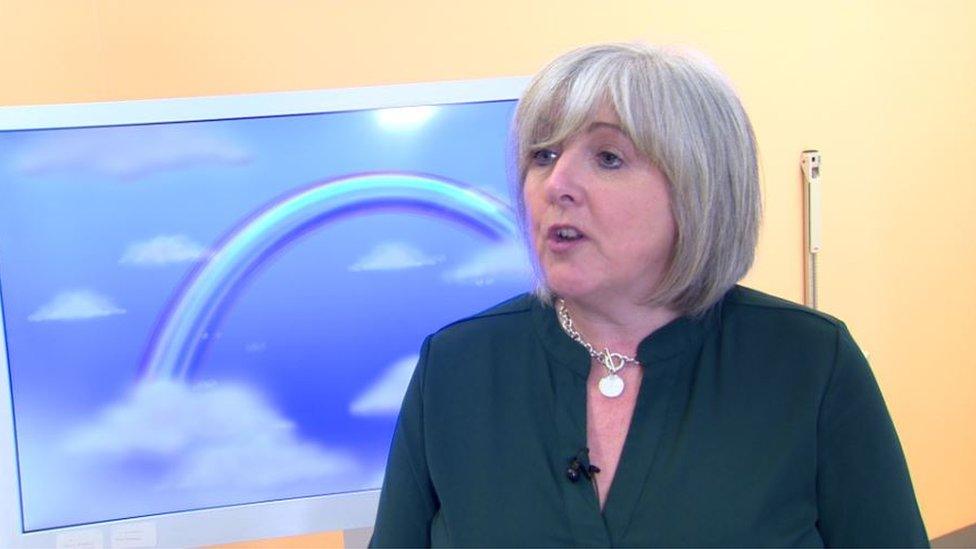
Claire Galloway is service manager at the Rowan
Tucked away in a leafy corner on the grounds of Antrim Area Hospital, the Rowan provides support and services 24 hours a day, every day of the year.
And it has stayed open throughout the Covid-19 pandemic.
Although 60% are referred by the Police Service of Northern Ireland (PSNI), people can attend alone.
"People can self-refer, they can come without involvement of the police. They can come and get information," said Ms Galloway.

Laura's story
Laura (not her real name) was sexually assaulted after a night out nearly two years ago.
She was brought to the Rowan in the middle of the night by PSNI officers.
She was wearing pyjamas, scared and in shock.
Laura credits medics at the facility for helping her through some of the darkest hours of her life.
"They were literally holding my hand, comforting me.
"They had to ask me hard questions that I didn't really know how to answer at the time.
"It was embarrassing but I knew it has to be done and this is their job.
"They are not there to make you feel embarrassed they are there to help you."

Artwork is a feature throughout the facility
Laura was sexually assaulted twice - once in a car park while waiting for a taxi and again inside the car.
She said: "Why didn't I yell? I don't know.
"I physically couldn't. It literally felt like I was paralysed."
Navigating the legal system was long and arduous.
Her attacker initially pleaded not guilty but later changed his plea.
He is currently serving a jail term after prosecutors successfully appealed a lenient sentence.
"Everyone now knows the type of person that he is and that helps me," Laura added.
"I didn't do anything wrong. It took me time to realise that and it was hard.
"But I am still here."
Laura hopes that sharing her story will offer some solace to others.
"People need to know that this actually does go on in the world, there are people that can help them."

When someone comes to the centre they will be offered a forensic medical examination if there is evidence to be gathered, even if they don't want to prosecute.
Samples can be stored for up to two years should they change their mind.
Last year, 452 forensic medical examinations were carried out, including 64 on children aged 13 years or younger.
"We see people in the acute phase, so within the first 72 hours to five days," added Ms Galloway.
"But we are also tending to see increasing numbers of people who are now looking for help after historical abuse."
For those wishing to involve police, there are specialist units where statements can be taken aimed at sparing the distress of going to a police station.
"The Rowan has made a huge difference," Ms Galloway added.
"Previously services were disjointed.
"People either attended and reported through a police station or their local hospital or GP.
"We are a specialist team. We have specialist doctors and nurses and this is where they are going to get the best, gold standard care they can receive.
"We are a one-stop shop."
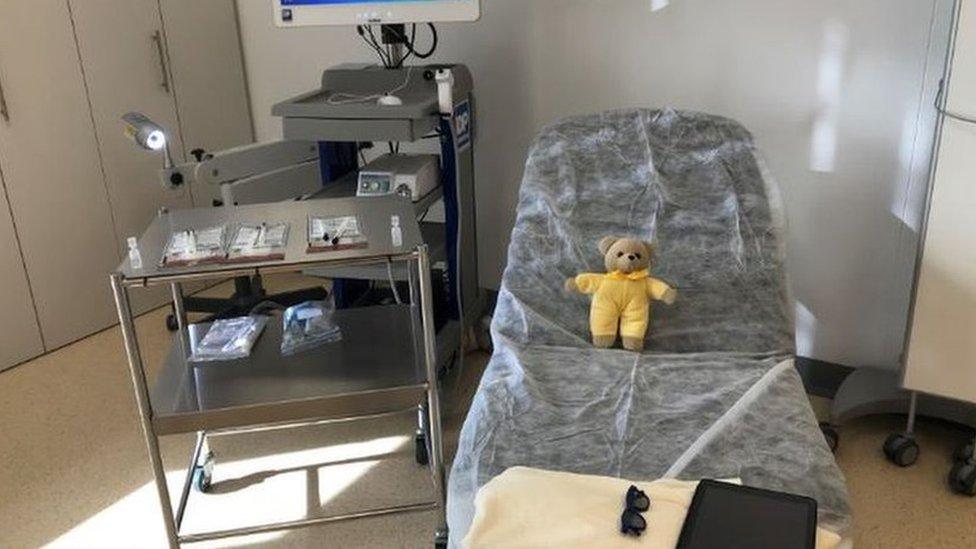
Last year, forensic medical examinations were carried out on 64 children aged 13 years or younger at the centre
The #metoo movement and campaigns such as the PSNI's #nogreyzone have generated a greater awareness around sex crime, leading to a rise in the number of reports.
Most victims who attended the Rowan knew the perpetrator - for about 10% of them, the sexual violence was carried out by an intimate partner.
And 38 of those who attended returned with another separate sexual assault.
But prosecuting sex offences is complex and challenging, according to officials.
Ciaran McQuillan, who leads the Public Prosecution Service (PPS) serious crime unit, said it would prosecute approximately 24% of the cases it receives from the police.
"Sexual crime cases present unique challenges around evidence gathering but also in the prosecution decision that we have to take," he added.
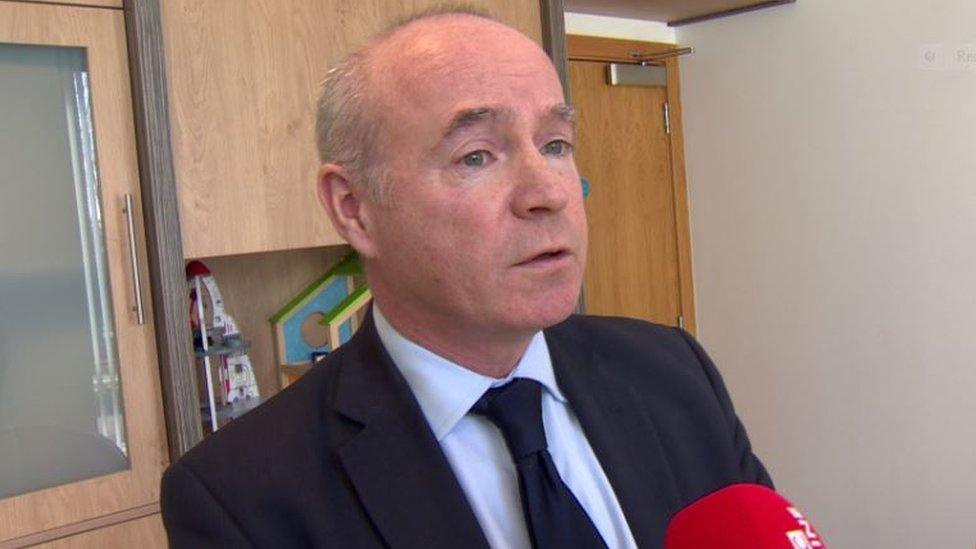
Ciaran McQuillan leads the Public Prosecution Service serious crime unit
"For example, a lot of these cases occur in private so the witnesses that you might expect to exist in other cases don't exist.
"The other issue that is very significant is the issue of consent, which is frequently raised, where the fact of sexual contact or sexual activity isn't in dispute and that means that the forensic evidence and medical evidence that might assist in other cases doesn't apply to these cases.
"They are very challenging.
"But the figures that we are prosecuting have risen. They have risen this year from last year and we hope that continues."
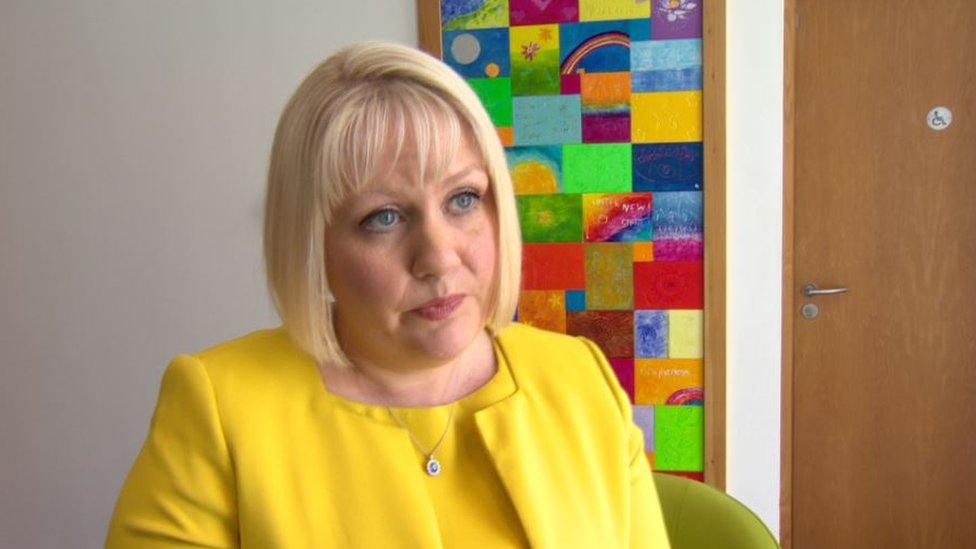
PSNI Chief Inspector Claire McGuigan said one of the main obstacles facing those coming forward is the fear of not being believed
The Rowan is part-funded by the PSNI.
Ch Insp Claire McGuigan from its public protection branch said it is a "vital" asset.
She said one of the main obstacles facing those coming forward is the fear of not being believed.
"It's important for people to realise that we have specially-trained detectives within our public protection service and we will treat them sensitively and with respect," she said.
"The message I would want to get out is please don't suffer in silence.
"Come and get some help."
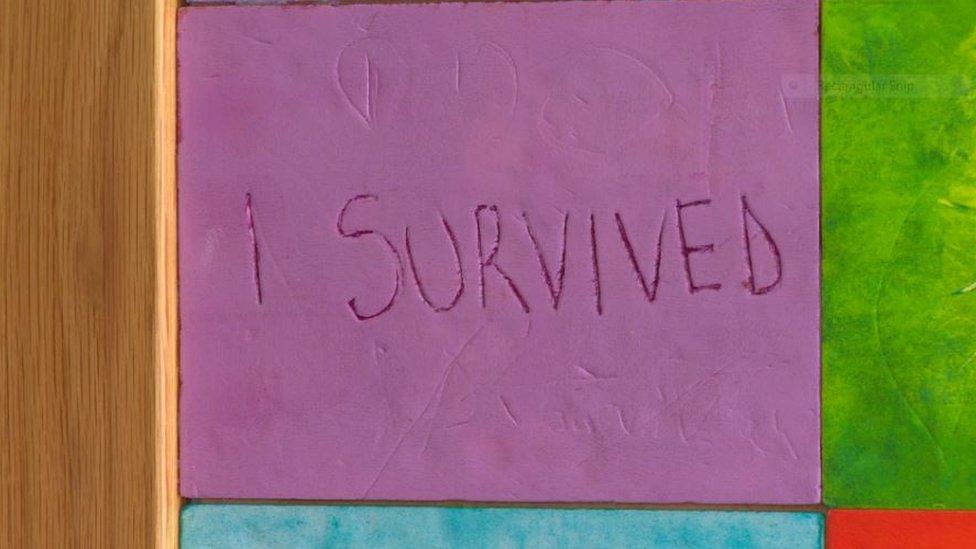
The focus of the Rowan is not just on forensics - counselling and therapeutic interventions are also routinely offered.
For many going to the Rowan for the first time, entry is through a discreet side door.
Ms Galloway said: "The rationale for that is to start the recovery process.
"They will never have to re-live the trauma of going through that same door again.
"It's the beginning of the healing process."
The hope is when they leave the Rowan for the last time, survivors will have their own message of hope to add to that mosaic on the reception wall.
This article was updated on 20 July 2020 to reflect new information from the Belfast Health and Social Care Trust that samples are now kept for a maximum of two years.